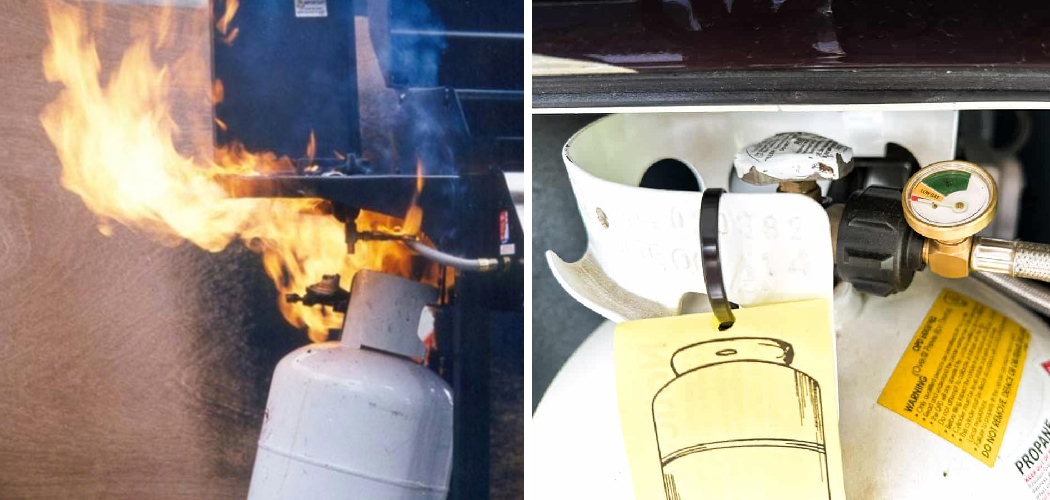Using propane as a fuel source for your grilling or heating needs is a convenient and efficient option for many homes and businesses. However, it’s important to prioritize safety precautions when utilizing propane to avoid potential hazards.
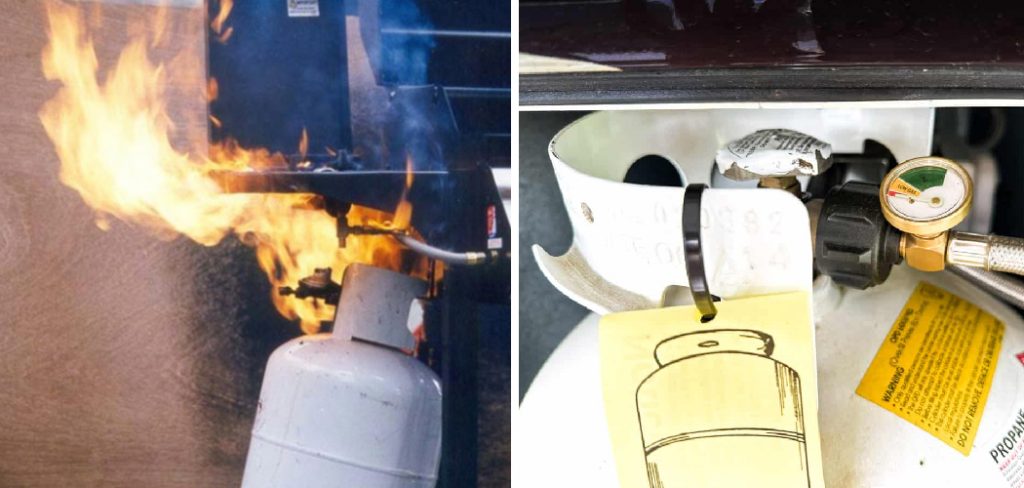
A propane leak is not only dangerous but can also be deadly if not addressed immediately. In this guide, we will provide step-by-step instructions on how to check for propane leaks and ensure that you are using this fuel source safely.
Can You Check for Propane Leaks?
Propane is a popular fuel used for heating homes and powering appliances. However, it is important to ensure no propane leaks in your home for safety reasons. Checking for propane leaks is crucial to prevent a potential fire or explosion.
There are many ways to check for propane leaks, including using soapy water to detect bubbles, utilizing propane gas detectors, and checking for a gas odor. Knowing how to check for propane leaks is essential to keep your home safe and secure and ensure your appliances function correctly.
Why Should You Check for Propane Leaks?
Safety must always come first when it comes to using propane as a fuel source. Propane is a highly flammable gas that can be hazardous if improperly handled. That’s why it’s crucial to regularly check for propane leaks in your home or business. Propane leaks can occur for various reasons, such as loose connections, old or damaged appliances, or even a ruptured gas line.
It’s important to check for leaks since propane is odorless, and you may not be able to detect it unless you use a detector. Early detection of leaks can prevent a dangerous situation from occurring. Be sure to have a professional check your propane gas system at least once a year to mitigate any risks. Remember, prevention is better than cure, and checking for propane leaks is a proactive step toward ensuring your safety and that of those around you.
How to Check for Propane Leaks: A Guide for Safe Usage
Step 1: Turn off all Appliances
The first step in checking for propane leaks is to turn off all propane appliances. This includes grills, stoves, and heaters. Ensure that all pilot lights are also shut off.
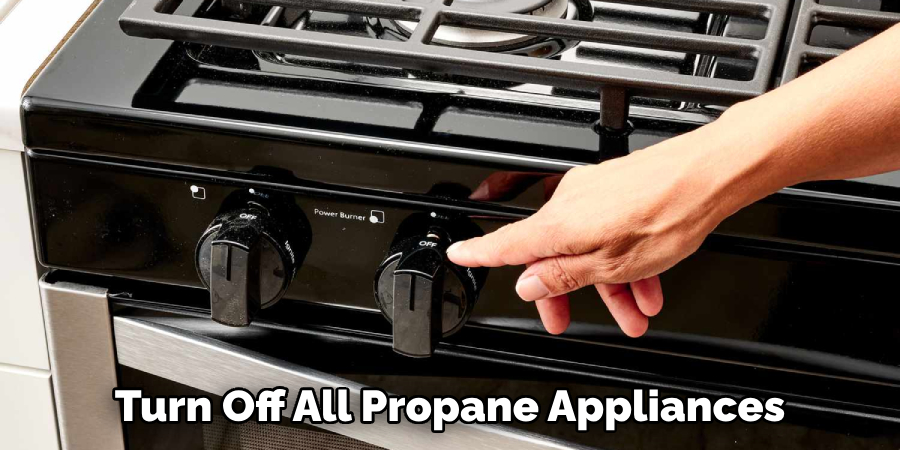
Step 2: Locate the Gas Line
Next, locate the gas line that supplies propane gas to your appliances. This line can typically be found outside your home or beneath the home. If you are unsure where to locate the gas line, contact your propane supplier for assistance.
Step 3: Spray Soapy Water
Once you have located the gas line, you will need to spray soapy water on it. This creates a bubble effect, which allows you to visually see if there are any leaks. Use a spray bottle with soapy water and thoroughly wet the gas line.
Step 4: Check for Leaks
After spraying the line with soapy water, carefully observe it. If you see bubbles forming on the surface of the line, this indicates that there is a leak. In this scenario, immediately turn off the gas supply and contact a licensed professional to repair the pipe. If you are unsure whether or not you’ve identified a leak, contact your propane supplier or a licensed plumber for help.
Step 5: Check Appliance Connections
While you are checking for leaks, it is also important to inspect the connections of your propane appliances. Ensure all connections are secure and free of any damage or wear and tear. If you notice any issues with the connections, contact a professional for assistance.
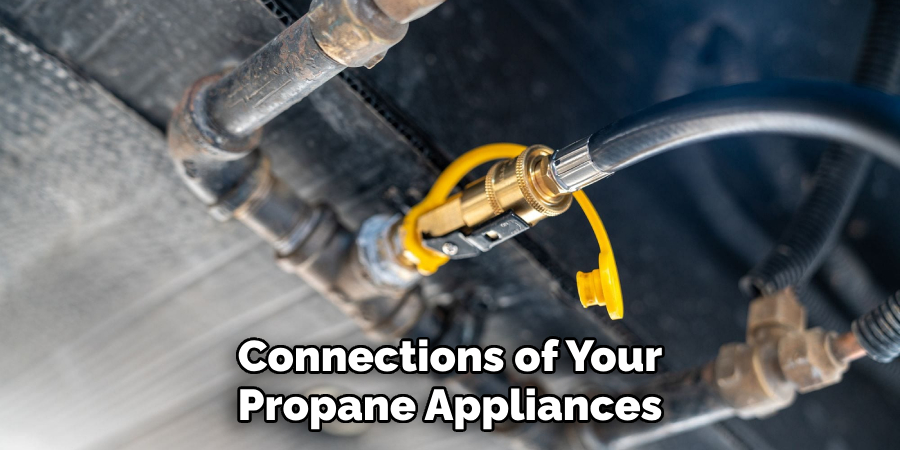
Step 6: Follow Your Nose
Propane gas has a distinct odor, often smelling like rotten eggs. If you smell this distinctive scent in your home, there is likely a propane leak. In this case, immediately turn off all appliances and the gas supply to your home. Contact your propane supplier and a professional plumber for assistance.
Step 7: Take Preventative Measures
To avoid future propane leaks, it’s important to take preventative measures. If you notice a gas smell, hear a whistle sound, or detect more bubbles after you’ve tightened the valve fittings, shut off the gas supply immediately and contact a professional. Additionally, ensure that all propane appliances are installed and maintained by licensed professionals. Always have a fire extinguisher on hand in case of an emergency.
5 Considerations Things When You Need to Check for Propane Leaks
1. Visual Inspection
The first and most obvious thing to do when checking for propane leaks is to visually inspect the propane system. Look for any visible damage, such as cracks or holes in the lines, valves, or tanks. Also, check for any signs of rust or corrosion, which can indicate a potential leak.
2. Smell
Propane has a distinct odor that resembles rotten eggs. If you smell this odor around your propane system, it could indicate a leak. However, remember that some people may have difficulty smelling this odor due to age or certain medical conditions. In this case, it’s important to rely on other detection methods.
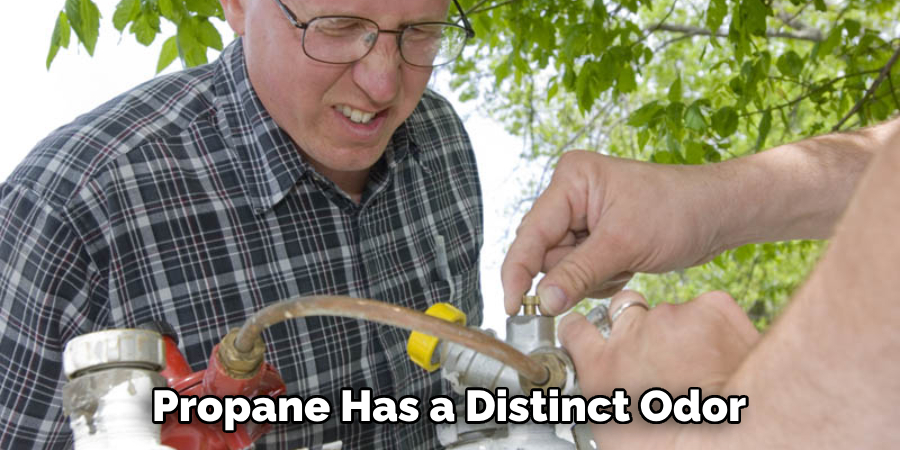
3. Listen
Sometimes, you may be able to hear a hissing sound coming from your propane system if there is a leak. This sound is caused by gas escaping from the system and should be taken seriously. If you hear this sound, immediately turn off the main gas supply and contact a professional for further inspection.
4. Use Soapy Water
One effective way to check for propane leaks is by using soapy water. Mix equal parts liquid dish soap and water in a spray bottle and spray it onto the connections and valves of your propane system while it is turned on. If there is a leak, bubbles will form at the site of the leak.
5. Carbon Monoxide Detector
Propane leaks can also lead to carbon monoxide (CO) buildup in your home or RV, which can be deadly if left undetected. Install CO detectors near your propane appliances and regularly test them to ensure they function properly. If your detector goes off, evacuate the area immediately and call emergency services.
5 Benefits of Check for Propane Leaks
1. Safety First
Safety is one of the main benefits of regularly checking for propane leaks. Propane is a highly flammable gas and can pose a serious risk if not handled properly. By regularly checking for leaks, you can prevent potential accidents and ensure the safety of your home or business.
2. Protect Your Health
Propane leaks not only pose a fire hazard, but they can also be harmful to your health. Inhaling high levels of propane can cause dizziness, headaches, and respiratory issues. Regularly checking for leaks can help prevent these health risks and keep you and your family safe.
3. Save Money
A small leak may not seem like a big deal at first, but it can add up to significant costs over time. Propane leaks waste fuel, increase your energy bills and potentially cause damage to your appliances or property. You can save money in the long run by catching and fixing leaks early on.
4. Extend Appliance Lifespan
Propane-powered appliances are an investment, and regular maintenance is key to keeping them functioning properly for years. Leaks can cause damage to appliances and shorten their lifespan if left undetected. Regularly checking for leaks ensures that your appliances are running efficiently and prolong their lifespan.
5. Peace of Mind
Regularly checking for propane leaks gives you peace of mind, knowing that everything is in working order and no potential hazards are lurking in your home or business. This allows you to relax and enjoy the benefits of using propane without worrying about any potential risks or damages caused by undetected leaks.
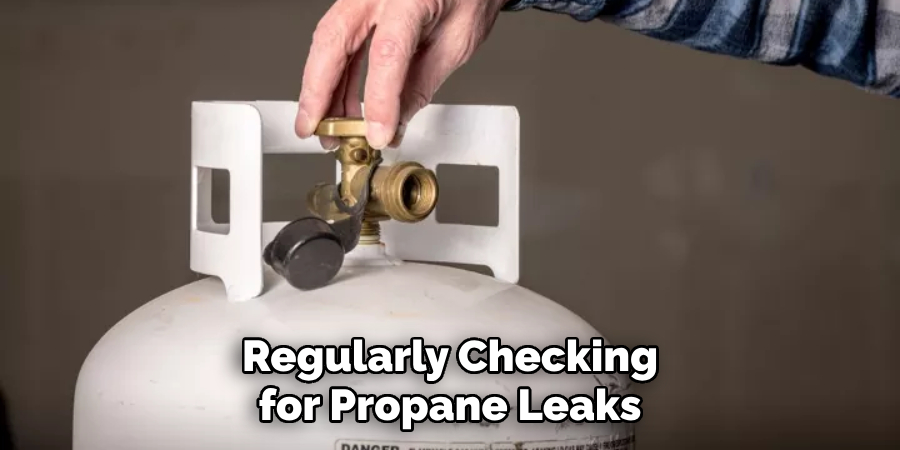
Some Common Mistakes People Make When Trying to Check for Propane Leaks
Propane leaks can be dangerous if left unchecked, so it’s important to know how to inspect your propane lines and tanks regularly.
However, some common mistakes can lead to a false sense of security, so knowing what to avoid is vital. For instance, many people rely solely on the smell of propane to detect leaks, but this isn’t always foolproof because there are certain situations where propane can lose its odor.
Other mistakes include overlooking exterior fittings, not conducting regular pressure tests, and failing to use proper equipment. By avoiding these mistakes and following the proper procedures, you can safeguard your home, business, or recreational vehicle against potentially hazardous propane leaks.
Conclusion
Propane is a convenient and efficient energy source, but it’s vital to prioritize safety when using it. To ensure that you are using propane safely, it’s important to check for leaks. Always turn off your appliances before checking the gas line, spray soapy water on the line to check for bubbles, and take preventative measures to avoid future leaks.
If you detect a propane leak, shut off the gas supply immediately and seek professional assistance to repair the leak. Following these guidelines guarantees the safe and responsible use of propane and can help to avoid potential hazards. Thanks for reading our post about how to check for propane leaks.

